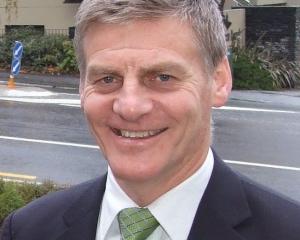Journalists are by nature deeply suspicious of politicians and the motives which drive them, and vice-versa.
Thrown together in the rabbit warren which passes for the parliamentary complex - a veritable hothouse fuelled by rampant ego, unrequited ambition, rumour and constant intrigue - MPs and media nevertheless have to establish a degree of trust for their mutually-parasitic relationship to function.
That trust works on many levels, be it MPs feeling they can talk off the record with confidence they will not be shopped to their superiors, to journalists respecting embargoes, to Cabinet ministers not blocking the release of sensitive documents sought by media under the Official Information Act.
The trawling of a Press Gallery reporter's phone logs by parliamentary authorities is a breach of trust of such mega proportions that it may well place a lingering chill on politician-journalist contact.
The legacy of the David Henry inquiry into the leaking of the Kitteridge report on the workings of the Government Communications Security Bureau may be to always leave the question lurking at the back of everyone's mind as to who else might be listening, reading or watching.
The supplying of the phone records of the Dominion Post's Andrea Vance to the inquiry displayed a callous disregard for press freedom which is without recent precedent.
But it does seem to have been a case of botch-up rather than conspiracy. Following days of Opposition claim and prime ministerial denial, the Department of Prime Minister and Cabinet yesterday issued around 135 pages of emails to verify that John Key's chief of staff, Wayne Eagleson, was not complicit in dredging up Ms Vance's phone records.
His role was confined to getting National Party ministers to comply with the inquiry and liaising with Peter Dunne's office.
The production of Ms Vance's phone records seems to have been the result of confusion between the inquiry, the management of Parliamentary Service, the sprawling bureaucracy which runs the parliamentary complex, and a contractor working for the service.
Mr Key has said he takes responsibility for Mr Henry's inquiry. As he set it up, he is obliged to do so.
However, he has refused to take responsibility for the inquiry seeking information about phone calls and other matters which he says it should not have done.
In making distinctions between what he is and is not responsible for, Mr Key is indulging in a convenient dilution of the already heavily watered-down constitutional convention of ministerial responsibility.
This attempt to put distance between himself and the shoddy behaviour of the Parliamentary Service has him now saying he will not be appearing before the inquiry conducted by Parliament's privileges committee which will attempt to get to the bottom of why Ms Vance's phone records were supplied to the Henry inquiry.
Mr Key's non-appearance only reinforces the feeling he is not treating the matter with the seriousness it deserves.
He should. If anything, this latest episode in the political follies flowing from the dysfunctional GCSB threatens to further undermine what little public confidence remains in the country's two security agencies.
When institutions like the Parliamentary Service, which is supposed to understand and work within the confines of the democratic ethos, displays such a cavalier attitude to private information, what confidence can the public have that the far more secretive GCSB, along with the Security Intelligence Service, will follow the letter of the law.
No doubt Mr Key is counting down the days to next week when the GCSB Bill will finally be passed by Parliament into law. But the privileges committee probe remains.
That this committee - the most powerful of all the bodies charged with ensuring Parliament functions properly - has moved with relative speed is an indication some of Mr Key's colleagues realise how much the Parliamentary Service has overstepped the mark.
The suspicion will be this apparent concern for the Fourth Estate is motivated by a fear of a wounded parliamentary media turning irreversibly against National with election year fast approaching.
That charge, however, cannot be levelled at the Speaker, David Carter, who referred the whole matter of access to phone logs, emails and individuals' swipe-card movements around the parliamentary complex to the privileges committee in order to get some protocols formulated for future guidance.
Mr Carter is as much a victim of the monumental lapse of judgement by his officials as the Press Gallery. As Speaker, he chairs the Parliamentary Service Commission, the body responsible for the Parliamentary Service. The Press Gallery and its rules also fall under his aegis.
His reward from Mr Key for making a more than reasonable fist of a job he never wanted was to be kept in the dark about the accessing of Ms Vance's phone records.
His officials also misinformed him such that he has been obliged to correct replies to written questions submitted by the Greens.
The resignation of Geoff Thorn, the general manager of the Parliamentary Service, was deemed necessary to restore confidence in an administrative body which had long ago relinquished any confidence journalists and MPs might have placed in it.
With Mr Thorn gone, the pressure shifted to Mr Eagleson to do likewise. Hence yesterday's sudden bout of crisis management.
John Armstrong is The New Zealand Herald political correspondent.





